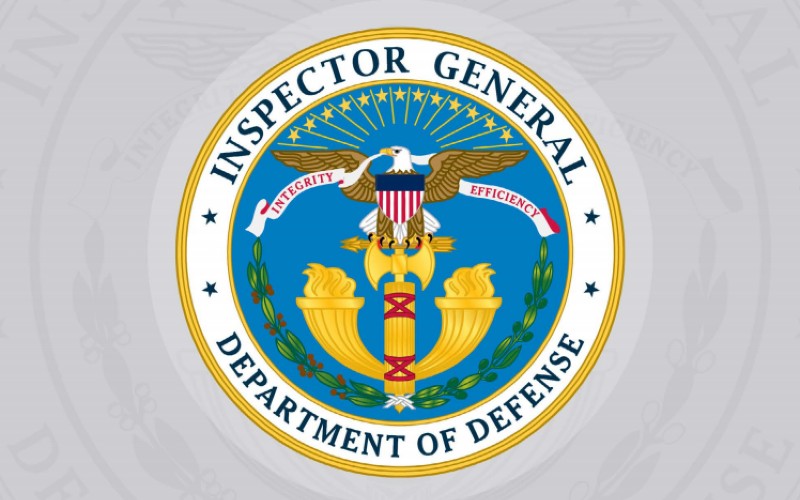In recent weeks, the Department of the Army has been disseminating letters to many former service members of the military branch. Letters were sent from the Army’s Human Resources Command (HRC) at Fort Knox, Kentucky, arriving in envelopes marked “Official Business.” The letter itself consists of a memorandum signed by Brigadier General Hope C. Rampy, director of Military Personnel Management.
American Family News spoke to Bradley Miller, a former U.S. Army lieutenant colonel who previously served as a battalion commander in the 101st Airborne Division. In October 2021, Miller was relieved of command --- unjustly, he says --- for refusing the jab . That controversial order came from Secretary of Defense Lloyd Austin, who approved an unlawful COVID-19 vaccine mandate for service members.
AFN reviewed the letter Miller received. It informs the recipient of recent policy changes regarding personnel affected by the January 2023 rescission of COVID-19 vaccination policies. It is not clear how many former soldiers have received the memorandum or exactly how the Army determined which veterans would receive it.

The letter also comes at the time the U.S. Army missed its recruitment goal by 10,000 soldiers when the 2023 fiscal year ended in September, Military.com reported.
According to Miller, the memorandum outlines methods in which former soldiers, like himself, might seek to correct their service records with respect to any derogatory files they might have received for choosing not to comply with the vaccine mandate instituted by Austin.
“The memorandum specifically mentions former soldiers discharged involuntarily with a status less than honorable who might wish to request an upgrade,” Miller says.
Austin caught virus twice
The former lieutenant colonel points out that the changes in policy mentioned in Rampy’s memorandum originate in newly published guidance from earlier this month that is found on the website of the Army’s Human Resources Command (HRC).
“Despite the policy changes permitting the correction of records," Miller says, "the update on the HRC website makes clear that the Army remains proud of its 'response to the pandemic and will continue to encourage vaccination against the COVID-19 variants.'"
Austin, the Defense Secretary, has tested positive for COVID-19 not once but twice, first in January 2022 and again in August, just seven months later.
 “Vaccinations continue to both slow the spread of COVID-19 and to make its health effects less severe," Austin said in a statement after catching the virus a second time. "Vaccination remains a medical requirement for our workforce, and I continue to encourage everyone to get fully vaccinated and boosted.”
“Vaccinations continue to both slow the spread of COVID-19 and to make its health effects less severe," Austin said in a statement after catching the virus a second time. "Vaccination remains a medical requirement for our workforce, and I continue to encourage everyone to get fully vaccinated and boosted.”
Austin had received a "booster" shot in October 2021, three months before testing positive the first time. He received a second "booster," too, though it was unclear in news reports when he got it.
Quite "curiously," Miller tells AFN, the updated guidance also states that soldiers who were "involuntarily separated" for refusing the vaccine can request "correction" of their military records to reflect an honorary and voluntary discharge.
“I am not immediately aware of how these records corrections might potentially impact ongoing litigation for those pursuing legal action against the Department of Defense," says Miller regarding current legal fights.
A 'smack in the face'
Because Miller and other unjabbed, former U.S. Army soldiers communicate often, Miller says he knows the letter is not a welcomed sight in the mail box. Some recipients, after putting their military life behind them, have laughed at it and tossed it in the trash.
"Whereas others see it as a further smack in the face," Miller advises, "at the suggestion that they must pursue a correction of their records as opposed to the Army itself performing an internal records audit on behalf of those wrongly affected.”
Additionally, he advises, many former soldiers won't be satisfied until the Army admits the "unlawful nature of the mandate, accountability for those responsible in pushing the mandates, and a good-faith attempt at full restitution to those damaged by the mandates inasmuch as restitution is even possible.”
Until that happens, he concludes, Miller and others view the letter as a desperate military branch trying to woo back soldiers to help its poor numbers.
“It is unsurprising that Rampy’s memorandum closes with an invitation for former soldiers to reconsider service by contacting a recruiter," he points out.







